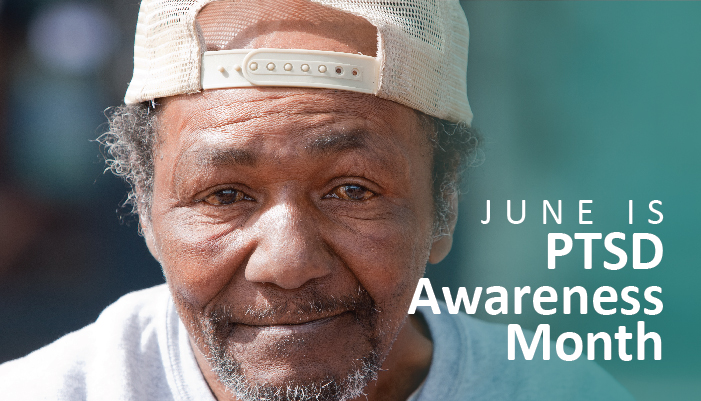
In June, we recognize PTSD Awareness Month. People living with PTSD, or post-traumatic stress disorder, have experienced or witnessed a life-threatening or terrifying event. It’s a mental health condition that can cause flashbacks, nightmares, severe anxiety, and uncontrollable thoughts about the event. Not just this month, but every month, it’s important to understand how to support and care for those living with PTSD.
At Volunteers of America Ohio & Indiana (VOA), we believe in a world where all people live in safety, with social, emotional, and physical well-being, spiritual fulfillment, justice, and hope. There are many people living with PTSD and dealing with their own internal battles from experiences in their past. When someone walks through the doors of VOA, they are greeted with respect and open arms to help them rebuild their lives.
Many people who have experienced traumatic events have difficulty coping and adjusting but can get better with support, good self-care, and time. If symptoms get worse and last for longer periods of time to the point where it impacts day-to-day life, it is referred to as PTSD.
Signs and symptoms of PTSD:
- Being easily startled or frightened
- Aways being on guard for danger
- Self-destructive behavior, such as drinking too much or driving too fast
- Trouble sleeping
- Trouble concentrating
- Irritability, angry outbursts or aggressive behavior
- Overwhelming guilt or shame
It’s important to get effective treatment after symptoms develop. If you are a friend or family member to someone with PTSD, it’s important to offer your support and make sure they know they have a support system to lean on. You can connect them to professional resources who can help them address their mental health in a safe place.
Remember that one person’s trauma might not have the same impact on a different person. People deal with trauma in different ways. And when supporting your friends or family with PTSD, it’s important to know that each day is different. Some days are good, and it might appear that nothing is bothering your loved one. But, other days could be very difficult, and they will need more support on those days.
For more resources and symptom information about PTSD, visit https://www.ptsd.va.gov/
